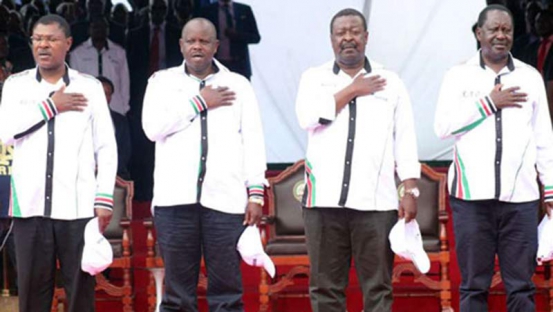×
The Standard e-Paper
Home To Bold Columnists

For a united opposition boasting some of Kenya’s most seasoned politicians in its line-up, NASA’s failure to clinch the ultimate price after promising so much has left its supporters asking hard questions.
With Raila Odinga, Kalonzo Musyoka, Musalia Mudavadi, Moses Wetang’ula and Isaac Ruto on one side, the alliance’s rallying call was that it had more than 10 million voters on its side. When the final tally of the presidential results came, it had managed just slightly above half of that.